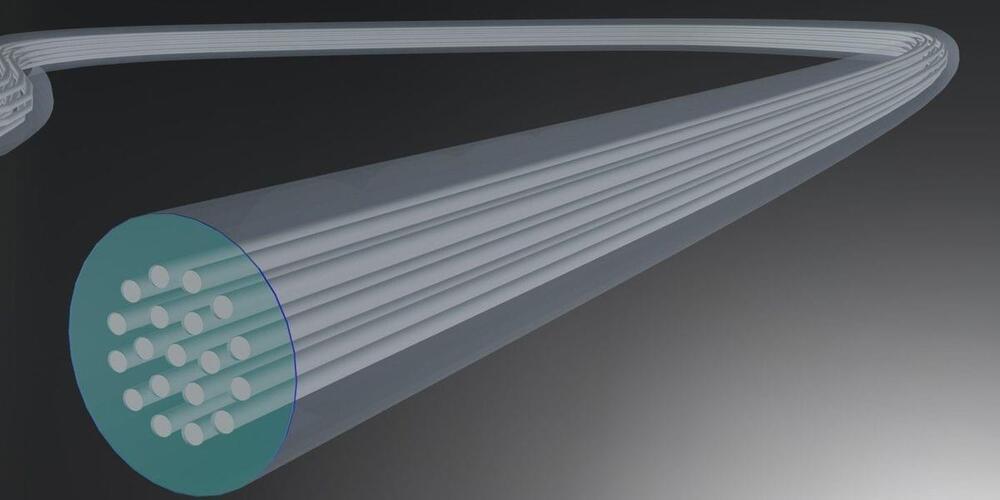Researchers in Japan and Australia have developed a new multicore optic fiber able to transmit a record-breaking 1.7 petabits per second, while maintaining compatibility with existing fiber infrastructure. The team–from Japan’s National Institute of Information and Communications Technology (NICT) and Sumitomo Electric Industries, and Macquarie University in Sydney, Australia—achieved the feat using a fiber with 19 cores. That’s the largest number of cores packed into a cable with a standard cladding diameter of 0.125 micrometers.
“We believe 19 cores is the highest practical number of cores or spatial channels you can have in standard cladding diameter fiber and still maintain good quality transmission,” says Georg Rademacher, who previously headed the project for NICT but who has recently returned to Germany to take up a directorship in optical communications at the University of Stuttgart.
Most fiber cables for long-distance transmission in use today are single core, single-mode glass fibers (SMF). But SMF is approaching its practical limit as network traffic rapidly increases because of AI, cloud computing, and IoT applications. Many researchers are therefore taking an interest in multicore fiber in conjunction with space-division multiplexing (SDM), a transmission technique for using multiple spatial channels in a cable.
